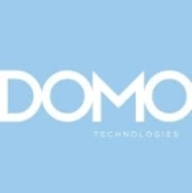

Domo and Zendesk compete in data reporting and customer service categories, respectively. Domo edges ahead in data handling and visualization capabilities, while Zendesk excels in customer support functions.
Features: Domo provides an all-in-one solution for data reporting and visualization, emphasizing data integration and real-time analytics. It offers ease of creating graphs and scalability across organizations. Zendesk is focused on efficient ticket management and customer service, with strong integrations across various platforms. It is noted for its effective management of customer interactions and simplicity across multiple channels.
Room for Improvement: Domo users desire improved data management and enhanced visualization options, expressing a need for better real-time updates and collaboration tools. Zendesk users criticize its limitations in ticket customization and a lack of deeper analytical features, seeking improved reporting and integration capabilities.
Ease of Deployment and Customer Service: Domo supports various deployments, including on-premises and hybrid cloud. Users mention slow technical support and setup challenges. Zendesk is praised for its simple cloud-based deployment, though initial setup can be complex. While both have responsive customer service, resolving issues can be inconsistent.
Pricing and ROI: Domo is considered expensive but offers high ROI through its data integration and automation abilities. Zendesk's pricing is perceived as high but justified by its customer support capabilities, offering flexible licensing options that allow for business scaling. Both platforms provide substantial ROI; Domo enhances data handling efficiency, and Zendesk boosts customer interaction management.
If you're actually using Domo at a very limited case and you're being charged $20,000, we've seen ROI there, but once it goes really high, you really need to check your metrics and check your profit.
They were quite professional and in around three to five working days, they had identified where they suspected there was an issue and I was able to fix it.
It's very easy to get technical support from Domo.
Support-wise, they are good.
The technical support provided by Zendesk has been very satisfactory.
Their support team from Zendesk is excellent, similar to what you have in Freshdesk.
The fact that you're able to easily identify the pipelines or flows that have errors, and it notifies you when you're building a pipeline where you can run previews and tell where to fix issues, is helpful.
When fetching files larger than 100 MB from SFTP or any other portal, Domo becomes slow due to the heavy file size.
Sigma, which is written for Snowflake, scales more easily than Domo.
Zendesk can scale from very small companies to very large ones.
The scalability of Zendesk is still in the same range as Freshdesk.
In recent years, I haven't had such cases. It's quite stable and I don't have any reservations on its stability.
In terms of overall stability of the platform, it's very stable.
During that time, we faced issues from the project side as Domo was not visible in our portal.
The stability has been quite reliable.
End users require a license to run their own reports and dashboards, which are fairly expensive.
Some technical aspects such as Beast Mode calculation could be improved in Domo, as it would provide more clarity and help in giving insights to clients or customer business team requirements.
One of the areas where we've had frustrations with Domo is the aesthetics. The aesthetics are quite limited compared to other BI tools such as Tableau and Power BI.
There could be improvements in integration, which can be achieved with APIs or tools like Zapier.
Domo's pricing is high compared to other BI tools, and it is costly.
For long-time users, it can become expensive, but the trade-off is access to the entire platform instead of licensing different components separately.
They quoted approximately one dollar per KB.
It is not the cheapest solution nor the most expensive, but it provides value for money.
App Studio is valuable because it allows all the customization we needed; we can decode it, with the view and grid which are all I need, drill-downs, and everything can be done the way I need it.
I have been using it for four years and have been able to extract the information I need from it.
The most valuable feature of Domo is the fact that you can connect multiple inputs and you don't have to have a data warehouse.
It allows us to handle more support cases with fewer people due to its advanced artificial intelligence capabilities.
The benefits I have seen from using Zendesk include faster response times.
| Product | Market Share (%) |
|---|---|
| Domo | 9.1% |
| Zendesk | 0.6% |
| Other | 90.3% |


| Company Size | Count |
|---|---|
| Small Business | 16 |
| Midsize Enterprise | 11 |
| Large Enterprise | 20 |
| Company Size | Count |
|---|---|
| Small Business | 29 |
| Midsize Enterprise | 20 |
| Large Enterprise | 11 |
Domo is a cloud-based, mobile-first BI platform that helps companies drive more value from their data by helping organizations better integrate, interpret and use data to drive timely decision making and action across the business. The Domo platform enhances existing data warehouse and BI tools and allows users to build custom apps, automate data pipelines, and make data science accessible for anyone through automated insights that can be shared with internal or external stakeholders.
Find more information on The Business Cloud Here.
Zendesk Support is intuitive, and it's built with support agents in mind. Everything they need lives in a single, dynamic help desk interface so it's easy to be productive and manage customer interactions.
We monitor all Reporting reviews to prevent fraudulent reviews and keep review quality high. We do not post reviews by company employees or direct competitors. We validate each review for authenticity via cross-reference with LinkedIn, and personal follow-up with the reviewer when necessary.